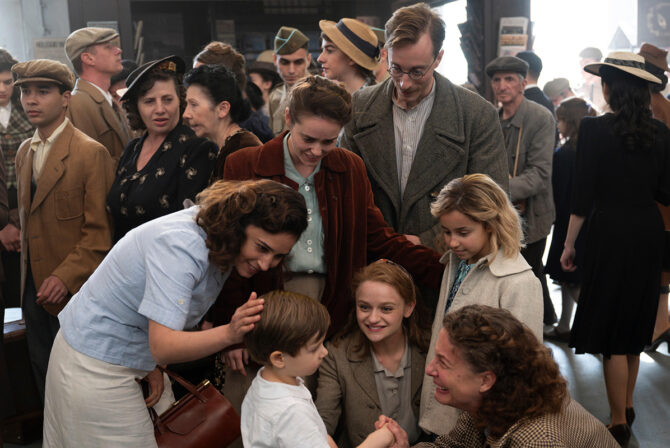My apologies to Elton John, but “sorry” is not the hardest word. If anything, it’s a little too easy. My kids learned early on that this was the quickest way to shut down any lecture. When they’d interrupt me with a well-timed, “I’m sorry,” what was I left to say? But I wanted them to understand why they should feel sorry, not just say it.
Sorry has to mean something real. What we actually need to teach our children is teshuvah (repentance). Problem is, “Teshuvah Seems To Be the Hardest Word” is not likely to hit the airwaves anytime soon (even if sung by Katy Perry or Beyonce).
The High Holidays do offer a good starting place, though. The days in between Rosh Hashanah and Yom Kippur are called the Ten Days of Repentance. What we’re supposed to do during this time is so much more complicated than just saying “I’m sorry.”
I remember being a child and going to services on the High Holidays and, inevitably, getting bored. I’d sit with my sister and giggle over the Al Het list–the communal lists of sins that we were all sorry for. We joked about the outrageous items, pretending we were guilty of them: “Oh yeah, xenophobia, check!” But then we’d come to ones we were guilty of–gossip, jealousy, pride. We were silenced by our guilt.
Teshuvah and Empathy
The essence of teshuvah is this: if you’ve done something wrong or hurtful and you find yourself in the same or similar situation again, you will act differently, better. So what it really boils down to is empathy. If you understand the other person’s point of view, you will protect them.
Empathy is a difficult concept for young children. After all, their world and our world seem to only revolve around them. But using the times they are sad or hurt–the moment a friend won’t share with them or the time they are called a name–as teachable moments, you can help them begin to understand. If they remember how it feels to be sad, they won’t want to do the same thing to someone else. Using toys or dolls or even play-acting can help with this. Make your stuffed elephant sad because your child’s lion won’t play with it. What should the lion do? Or maybe your elephant hurts his lion somehow. How does the elephant say he’s sorry? How does he show he means it?
Modeling: The Best Way to Teach
Don’t be afraid to share your own feelings with your children, too. By modeling teshuvah, you’re not only teaching them a lesson, you are deepening your own relationships. Let your children know when you feel sad or hurt and why. Say, “Mommy’s feeling sad today because a friend at work said a mean thing about my project and that hurt my feelings.” Knowing how you feel will help them understand how our actions affect others. Try to talk about feelings, happy or sad, every day.
Like most things, I think the best way my husband and I taught our children was through modeling. If I was cranky and yelled unnecessarily at my kids, I apologized. I did so during a quiet time (like bed time), when my child could focus on what I was saying. When my daughter would reply, “It’s okay, Mommy,” I often said, “No it’s not. I was really wrong. I shouldn’t yell in general and I certainly shouldn’t yell at you because I’m upset with something else. I will try much harder not to do that again.” And then I really would try (though sometimes I slipped up; no one is perfect!).
How to Really Do Sorry
If you’re looking for another way to literally bring this message home, I recommend a book called Tashlich at Turtle Rock. Written by mother and daughter Susan Schnur and Anna Schnur-Fishman, it describes their family’s unique High Holiday tashlich ritual. Every year after Rosh Hashanah services, the Schnur family goes on a nature walk. Along the way, they scratch words into rocks that represent good memories from the past year, toss acorns into a stream to represent memories they are ashamed of, throw pieces of bread into the water and silently reflect on behaviors they want to change, and finally, dip their feet into the water and make promises for the coming year. They don’t focus on saying the empty “I’m sorry,” but with every step, they reflect on their actions from the past year, reinforcing the importance of actions over words. It’s not enough to say sorry, you have to do sorry. (Check out our tashlich activities to figure out how you can do something like this at home, too.)
No one is perfect. No one expects perfection. The gift we have this time of year is the chance to look inward and think about how we could be better. And that’s the hardest thing about saying “sorry”… it’s really meaning it.
Need help planning what to do for Rosh Hashanah and Yom Kippur this year? These articles can help you brush up on the holidays. And you might want to make these apple placemats with your kids and try baking a round challah together.







